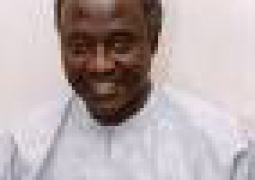Today,
Wednesday, journalists the world over celebrate World Press Freedom Day on the
theme ‘Critical Times, Critical Minds.’
In The Gambia, a line up of activities is set aside by the Gambia Press
Union to mark the day.
It
is pertinent to use the day to reflect on the importance of press freedom,
particularly in an emerging democracy like The Gambia’s. It is also important to put critical minds to
task to think of ways and means of addressing the myriad of challenges
confronting the Gambian media.
Journalism
is a business of telling the truth, nothing but the truth. But in telling the truth, a lot of
journalists have fallen prey in the hands of the powers that be.
Therefore,
on this world press freedom day, we wish to express our concern about
journalists who were killed, arrested, tortured, disappeared, or subjected to
other forms of inhumane and degrading treatments for just doing their
professional job.
For
example, Deyda Hydara, co-founder of The Point newspaper, lost his life in the
hands of wicked men who killed him on 16 December 2004 at the Sankung Sillah
Junction along the Banjul Highway while driving his staff home from work.
Chief
Ebrima Manneh, a reporter with the Daily Observer newspaper, disappeared since
he was picked up from his office on 6 July 2006.
Despites
calls for justice in these cases and many other crimes against journalists in
The Gambia, not much have been done to get the assassins.
All
hopes are now on the Adama Barrow-led government to help address the plights of
the media and for him to fulfill his promise of media reforms that would see
improvement in the working condition of journalists.
Already,
from the side of the government, there is at least little hope in the
horizon. The new information minister is
a veteran journalist and once a president of the Gambia Press Union. He has been a renowned advocate of press
freedom and freedom of expression in The Gambia. With a man like him in the government, we
hope there are some glad tidings for the Gambian media.
Meanwhile,
there is need for self-regulation for the media to avoid the government serving
as the media police; it is better for the media to be self-regulated to ensure
proper coordination and responsible journalism practice.
Of
course, responsible journalism calls for some level of maturity and
education. This is where the Gambia
Press Union School of Journalism, and the University of The Gambia School of
Journalism and Digital Media have a huge role to play.
It
is important that the teeming number of youth joining the media receive the
requisite training.
In
line with this year’s theme of World Press Freedom Day, there is a need for
critical thinking so as to bring the critical issues militating against the
growth and development of the Gambian media.
“A
free press is the cornerstone of democracy; there is no question about that. ”
Hugh
Grant



